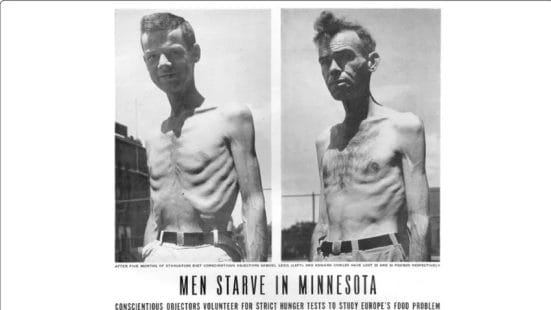
.
As coaches it is our responsibility at Haven to help our clients separate what works from what might sound like it works but actually doesn’t. Why?
Because as human beings, we are wired to seek short term gratification for our survival as a species. Although it would be smarter of us to budget, control our eating impulses, and work hard now to relax later, planning for the future requires sacrifice and patience – which isn’t as sexy as Get Rich Quick Schemes or 6 Week Bikini Body Belly Blast Challenges.
Manipulative marketers and sleazy salesmen capitalize on this by painting a picture of faster, easier results when peddling their products or services.
At best, we buy and waste money, time and energy on solutions that don’t solve anything, but do put more dollars into someone else’s greedy pockets.
At worst, we wreck our health, give up on our fitness journey, or even in some extreme cases forego something as crucial as chemotherapy for some new Ancient Herbal tincture under the tongue – losing our lives.
Snake-oil salesmen have been deceiving and profiting from our laziness, impatience and lack of education and ignorance for as long human beings could talk and gesture. There are as many scams as there are years of human history.
Which is why as coaches in general and as Haven Coaches in particular, we find it our duty to educate our clients on what actually works instead of what sounds too good because that’s what it usually is: too good to be true.
So, let’s discuss the top 3 fitness (training, nutrition and mindset) myths that are the most harmful. This will be one of 2 more blogs finishing Part of 2 of “What’s the hardest part of getting fit” series.
How have we defined the most harmful myths?
- Those which cause the most pain and suffering.
- Those which cause it for the most amount of people in the general population.
.
Starting off with the….
.
Carbs are Bad For You Myth (The Carbohydrate-Insulin Model)
.
The carbohydrate-insulin model (CIM) says that increases in body fat are caused by excess consumption of carbohydrate, which then disrupts normal insulin metabolism leading to weight gain and weight-related illnesses.
According then to the carbohydrate–insulin model, low-carbohydrate diets would be the most effective in causing long-term weight loss.
This is what all low-carb diets such as Keto, Paleo and Carnivore are based on.
Is is true though? Is weight gain caused by eating too many carbs, increasing our insulin hormone, leading to more fat storage and therefore can we lose and keep off all the weight by saying no to them?
If that were so, then your brother in law who went Vegan wouldn’t have lost all that weight eating just carbs (veggies are a carb too.)
If that we’re so, then your best friend who fasts until 12pm everyday and still has carbs yet has lost 20+ lbs shouldn’t have been able to.
If that we’re so, then the Minnesota Starvation Experiment conducted by the Allied Forces at the end of World War II to understand the effects of calorie restriction and guide the efforts of post-war famine rehabilitation shouldn’t have shown that test subjects who ate 1500 calories of potatoes, rutabagas, turnips, bread and macaroni (cutting their regular caloric intake in half) shouldn’t have looked like this:

.
This is not to say that low carb diets do not work. They have their merits. But this is to say emphatically:
That low-carb diets are just as effective as high carb diets for weight loss, so long as protein and fiber intake is adequate, and the diet fits well into the dieters lifestyle.
But what about insulin? Doesn’t high levels of insulin lead to fat storage?
High carb diets lead to increased storage of carbs into fat cells, yes.
But if we are burning more calories than what we consume, then we are also burning the excess fat and carbohydrate storages.
Think of it like this: if you cash a check of $1000, but spend $1500, you had a loss of $500 that you either pulled out of savings, put on a credit card or borrowed from a friend.
So if we store 50g of carbs but burn 100g of carbs, then the net effect is we lose 50g of carbs. In other words, so long as we are in a calorie deficit, we will lose weight regardless if we did see a spike of insulin and excess carb storage.
Leading us to the mainstream energy balance model (EBM), which says that weight gain is caused by a excess in calorie consumption compared to calorie expenditure.
If we don’t understand this, we will waste precious years of our lives and burn through hard earned cash on buying all sorts of weight loss products and services that are selling us the lie that carbs are bad, that our hormones are screwed up, and that in order to fix it we need to buy their products.
In short, one of the most severe fitness myths is that carbs are bad and high insulin levels are to be blamed for your weight gain or lack of weight loss.
What is true is that calories, protein and fiber being the same, high fat low carb diets are just as effective as high carb low fat diets so long as the dieter, client, person can see themselves stick to it over the long term.
Hope this helps! And if you’re looking to dial in your nutrition, then simply feel free to give us a call or text at +1 908-341-0232 so we can schedule a free No Sweat Intro Consultation and see which one of transformation programs is best for you.
Coach B.


